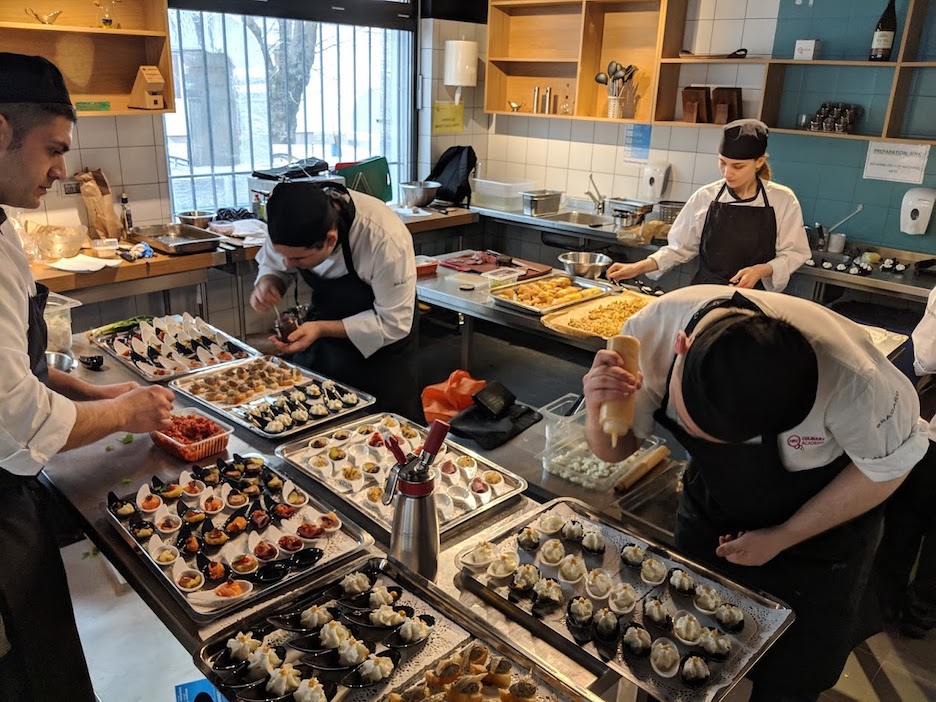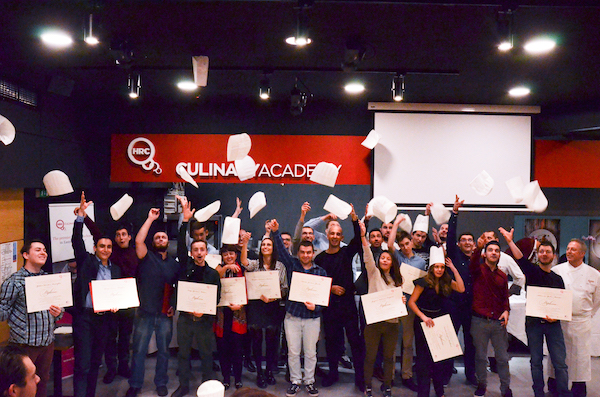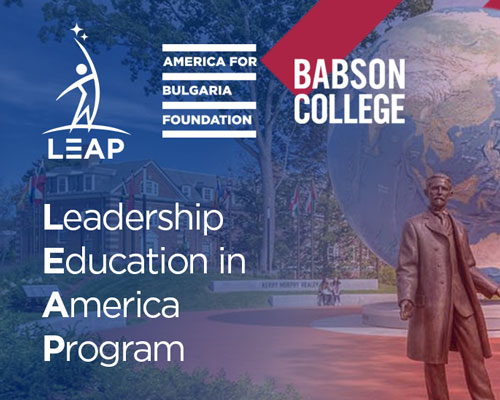 Whether you want to open your own bed & breakfast or work at a Michelin-rated institution in the world’s culinary hubs, training matters—the more of it, the better. In the past, getting sufficient knowledge and experience took years and usually involved doing a series of unpaid internships or starting at the very bottom, bussing tables or dishwashing. Sometimes, a career in hospitality resembled a tortuous uphill slog.
Whether you want to open your own bed & breakfast or work at a Michelin-rated institution in the world’s culinary hubs, training matters—the more of it, the better. In the past, getting sufficient knowledge and experience took years and usually involved doing a series of unpaid internships or starting at the very bottom, bussing tables or dishwashing. Sometimes, a career in hospitality resembled a tortuous uphill slog.
This is no longer the case thanks to professional schools like HRC Culinary Academy in Sofia, Bulgaria. An HRC education ensures students get all the preparation they need to excel in culinary and hospitality careers around the world. At HRC, they don’t just learn supplier management or cooking; they master every aspect of running a successful hospitality business. The wide array of skills they develop through an HRC education serve them well both in high-powered careers at the best restaurants worldwide and in their own entrepreneurial ventures.
 “We support our students’ overall development so that they can be successful whether they choose to offer a catering service, open a small traditional restaurant, or work in a large resort,” says Stefan Zhelyazkov, the Academy’s marketing manager and a lecturer in hospitality management. To help them get there, in addition to a core education in culinary basics and trends, the Academy offers classes in marketing, cost control, entrepreneurship, food photography, and others. Trainees learn to create menus, manage suppliers, create outstanding dishes, and deliver a memorable customer experience.
“We support our students’ overall development so that they can be successful whether they choose to offer a catering service, open a small traditional restaurant, or work in a large resort,” says Stefan Zhelyazkov, the Academy’s marketing manager and a lecturer in hospitality management. To help them get there, in addition to a core education in culinary basics and trends, the Academy offers classes in marketing, cost control, entrepreneurship, food photography, and others. Trainees learn to create menus, manage suppliers, create outstanding dishes, and deliver a memorable customer experience.
Food is at the center of most unforgettable experiences, so the Academy’s core program leads to an associate’s degree in culinary arts. The intensive two-year program includes both classwork and hands-on training at the Academy’s training restaurant, Talents, as well as two paid internships in restaurants and hotels in Europe and the United States. HRC also offers an associate’s degree in food and beverage management and a professional bachelor’s degree in entrepreneurship in the food and beverage industry in collaboration with the College of Management, Trade & Marketing. At the students’ disposal in Sofia are the largest culinary library in the country and a state-of-the-art training facility featuring kitchen labs, a chocolate atelier, a 100-seat demo theater, a bakery kitchen, and a didactical wine cellar. Instruction in English and accreditation by the American Culinary Federation ensure graduates’ training is recognized worldwide.
 Practice is fundamental to an HRC education. “Students learn to do everything, and they also get training in the dining room. You have to understand how a dining room functions because one of the major problems in most restaurants is the kitchen’s communication with the dining room,” says Francisco Lorenzo, a chef instructor at the Academy.
Practice is fundamental to an HRC education. “Students learn to do everything, and they also get training in the dining room. You have to understand how a dining room functions because one of the major problems in most restaurants is the kitchen’s communication with the dining room,” says Francisco Lorenzo, a chef instructor at the Academy.
“They learn decision-based thinking. Moreover, understanding the entire hospitality process opens up many opportunities for them,” says Tatyana Dimitrova, the Academy’s project manager. “Employers know that our graduates come ready to start working right away.” Unsurprisingly, most graduates get job offers within six months of graduation.
Academy graduates work at top-rated restaurants such as Zuma in London or La Petite Maison in Miami and luxury hotels such as Four Seasons UK and the Waldorf Berlin. Others occupy executive positions in Bulgaria-based companies like Biorest, a food products supplier. Still others start their own businesses such as Miam, a catering company in Sofia.
 Founded in 2008 in the northeastern city of Dobrich, the Academy originally helped staff the Bulgarian Northeast’s large hospitality industry. Five years later, the Academy relocated to Sofia to accommodate growing demand for a quality culinary education nationwide as well as increasing international interest in its programs. In just eleven years, the combination of quality theoretical and practical training delivered by leading Bulgarian and foreign chefs and hospitality managers at a fraction of the cost of similar institutions in Western Europe and the United States has distinguished the Academy as the premier culinary school in Eastern Europe. Today, the Academy boasts more than 236 graduates and a diverse student body drawn from 18 countries on four continents.
Founded in 2008 in the northeastern city of Dobrich, the Academy originally helped staff the Bulgarian Northeast’s large hospitality industry. Five years later, the Academy relocated to Sofia to accommodate growing demand for a quality culinary education nationwide as well as increasing international interest in its programs. In just eleven years, the combination of quality theoretical and practical training delivered by leading Bulgarian and foreign chefs and hospitality managers at a fraction of the cost of similar institutions in Western Europe and the United States has distinguished the Academy as the premier culinary school in Eastern Europe. Today, the Academy boasts more than 236 graduates and a diverse student body drawn from 18 countries on four continents.
In 2017–2018, the America for Bulgaria Foundation supported the Academy’s efforts to promote careers in hospitality to youth around Bulgaria. In a series of contests organized by the Academy in Gabrovo, Razgrad, and Vratsa, aspiring chefs showed off their culinary skill by crafting their own takes on old family recipes. The best performers won scholarships to train at the Academy in Sofia.
In 2020, the Academy will open its own hotel, featuring a large, open kitchen showroom, which will allow hotel guests to observe HRC trainees at work.

